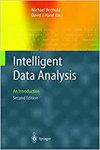FairAW -无歧视的加性加权
IF 0.8
4区 计算机科学
Q4 COMPUTER SCIENCE, ARTIFICIAL INTELLIGENCE
引用次数: 0
摘要
随着人们越来越意识到决策的社会影响,公平已经成为一个重要的问题。更具体地说,在许多现实世界的情况下,决策者可能会基于继承的或适当的属性(如性别、年龄、种族或宗教)无意地歧视某一组个人。在本文中,我们引入了一种称为公平加性加权(FairAW)的后处理技术来实现多准则决策方法中的群体和个人公平性。该方法的基础是通过施加公平的标准权重来改变备选方案的得分。这是通过最小化受公平约束的个体得分的差异来实现的。所提出的方法可以成功地应用于多准则决策方法中,其中使用加性加权来评估个体的得分。此外,我们在合成数据和真实数据上测试了该方法,并将其与通常用于实现公平评分的差异性影响移除和FA*IR方法进行了比较。所得结果表明,FairAW在统计均等方面实现了群体公平,同时也保留了个体公平。此外,我们的方法在受歧视群体和特权群体之间获得了最好的得分平等。本文章由计算机程序翻译,如有差异,请以英文原文为准。
FairAW - Additive weighting without discrimination
With growing awareness of the societal impact of decision-making, fairness has become an important issue. More specifically, in many real-world situations, decision-makers can unintentionally discriminate a certain group of individuals based on either inherited or appropriated attributes, such as gender, age, race, or religion. In this paper, we introduce a post-processing technique, called fair additive weighting (FairAW) for achieving group and individual fairness in multi-criteria decision-making methods. The methodology is based on changing the score of an alternative by imposing fair criteria weights. This is achieved through minimization of differences in scores of individuals subject to fairness constraint. The proposed methodology can be successfully used in multi-criteria decision-making methods where the additive weighting is used to evaluate scores of individuals. Moreover, we tested the method both on synthetic and real-world data, and compared it to Disparate Impact Remover and FA*IR methods that are commonly used in achieving fair scoring of individuals. The obtained results showed that FairAW manages to achieve group fairness in terms of statistical parity, while also retaining individual fairness. Additionally, our approach managed to obtain the best equality in scoring between discriminated and privileged groups.
求助全文
通过发布文献求助,成功后即可免费获取论文全文。
去求助
来源期刊

Intelligent Data Analysis
工程技术-计算机:人工智能
CiteScore
2.20
自引率
5.90%
发文量
85
审稿时长
3.3 months
期刊介绍:
Intelligent Data Analysis provides a forum for the examination of issues related to the research and applications of Artificial Intelligence techniques in data analysis across a variety of disciplines. These techniques include (but are not limited to): all areas of data visualization, data pre-processing (fusion, editing, transformation, filtering, sampling), data engineering, database mining techniques, tools and applications, use of domain knowledge in data analysis, big data applications, evolutionary algorithms, machine learning, neural nets, fuzzy logic, statistical pattern recognition, knowledge filtering, and post-processing. In particular, papers are preferred that discuss development of new AI related data analysis architectures, methodologies, and techniques and their applications to various domains.
 求助内容:
求助内容: 应助结果提醒方式:
应助结果提醒方式:


